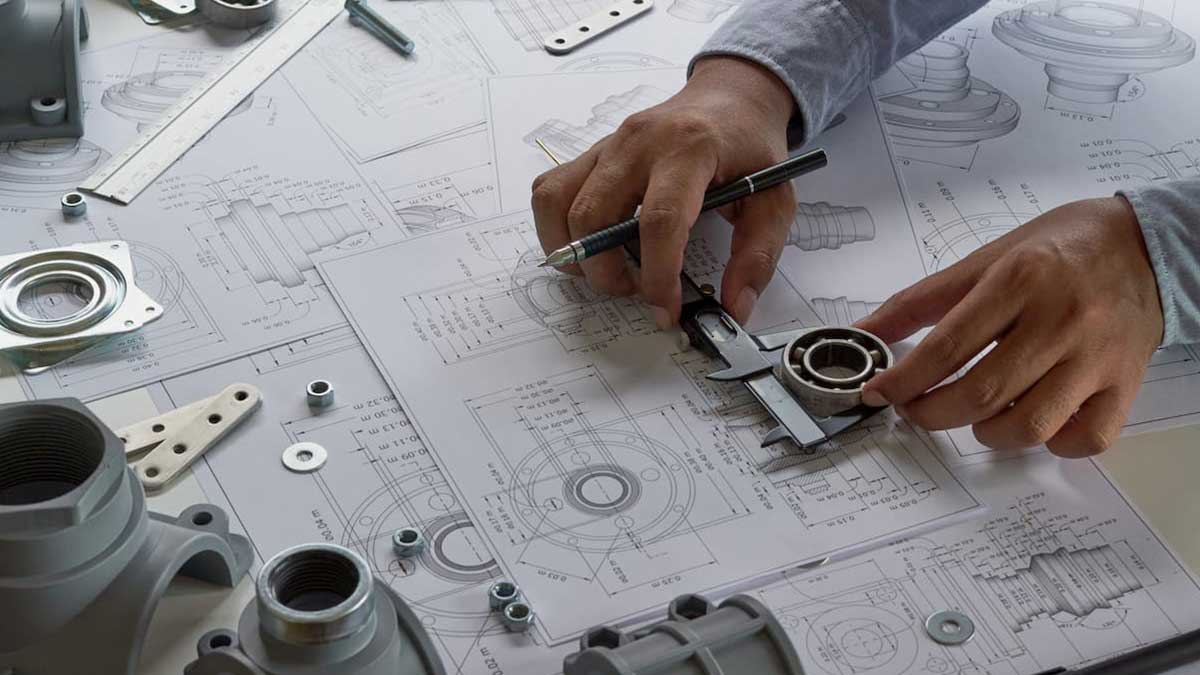The Aesthetics Of Civil Engineering Design

Engineering is an important field that involves the application of knowledge in science, mathematics, and technology to solve problems and design products that benefit society. Engineers aim to create innovative solutions that improve the quality of life and make the world a better place to live in.
Engineers use their creativity, knowledge, and skills to design and develop new products, processes, and systems, and to improve existing ones. They work in a variety of industries, including aerospace, automotive, chemical, construction, defense, energy, healthcare, and telecommunications, among others. Many engineers also work in research and development, academia, and government agencies.
Engineering is a highly diverse and multidisciplinary field, and there are many different types of engineers, including:
- Mechanical engineers, who design and develop mechanical systems, such as engines, machines, and robotics;
- Electrical engineers, who design and develop electrical systems, such as power generation, distribution, and utilization;
- Civil engineers, who design and develop infrastructure, such as roads, bridges, tunnels, and buildings;
- Chemical engineers, who design and develop chemical processes and products, such as pharmaceuticals, plastics, and fuels;
- Computer engineers, who design and develop computer hardware, software, and networks;
- Biomedical engineers, who apply engineering principles to solve medical and healthcare problems, such as developing prosthetics, medical devices, and imaging systems;
- Aerospace engineers, who design and develop aircraft, spacecraft, and related systems, such as satellite communication and navigation;
- Environmental engineers, who design and develop solutions to environmental problems, such as pollution control and conservation of natural resources.
Each type of engineer uses a unique set of skills and knowledge to solve problems and design products. However, all engineers share certain qualities, such as critical thinking, problem-solving, creativity, and strong analytical skills. They also have a deep understanding of mathematics, science, and technology, and are always learning and adapting to new technologies and trends.
Frequently Asked Questions About Engineering
What education do you need to become an engineer?
To become an engineer, you typically need a bachelor's degree in engineering or a related field, such as physics, mathematics, or computer science. Some employers may prefer or require a master's degree or a Ph.D. in engineering or a related field, depending on the job requirements and level of experience.
What skills do you need to be a successful engineer?
To be a successful engineer, you need a wide range of technical, analytical, and interpersonal skills. These include:
- Strong analytical and problem-solving skills;
- Excellent math and science skills;
- Proficiency in computer-aided design and other engineering software;
- Good communication and teamwork skills;
- Attention to detail and accuracy;
- Ability to work under pressure and meet tight deadlines;
- Creativity and innovation.
What are the current trends and challenges in engineering?
The field of engineering is constantly evolving, and new technologies and trends are emerging all the time. Some of the current trends and challenges in engineering include:
- The rise of artificial intelligence and machine learning;
- The growing demand for renewable energy sources and sustainable technologies;
- The need for cybersecurity and data privacy in a world that is increasingly digitized;
- The development of autonomous vehicles and smart transportation systems;
- The need to address global challenges, such as climate change, poverty, and access to clean water and healthcare.
What career opportunities are available in engineering?
There are many different career opportunities for engineers, depending on their specialization and interests. Some of the most popular career paths for engineers include:
- Design and development engineer;
- Research and development engineer;
- Project manager;
- Consultant;
- Quality control engineer;
- Systems engineer;
- Technical sales engineer;
- Engineering manager.
What are the benefits of a career in engineering?
There are many benefits to pursuing a career in engineering, including:
- High earning potential;
- Job security and stability;
- Opportunities for professional development and advancement;
- The ability to make a positive impact on society;
- The opportunity to work on exciting and innovative projects;
- The chance to work with people from diverse backgrounds and disciplines;
- The opportunity to learn and grow throughout your career.
Overall, engineering is a dynamic and exciting field that offers many opportunities for personal and professional growth, as well as the chance to make a real difference in the world. Whether you are interested in designing new technologies, solving complex problems, or making the world a cleaner, safer, and more sustainable place, a career in engineering can be a fulfilling and rewarding choice.


Post a Comment for "The Aesthetics Of Civil Engineering Design"